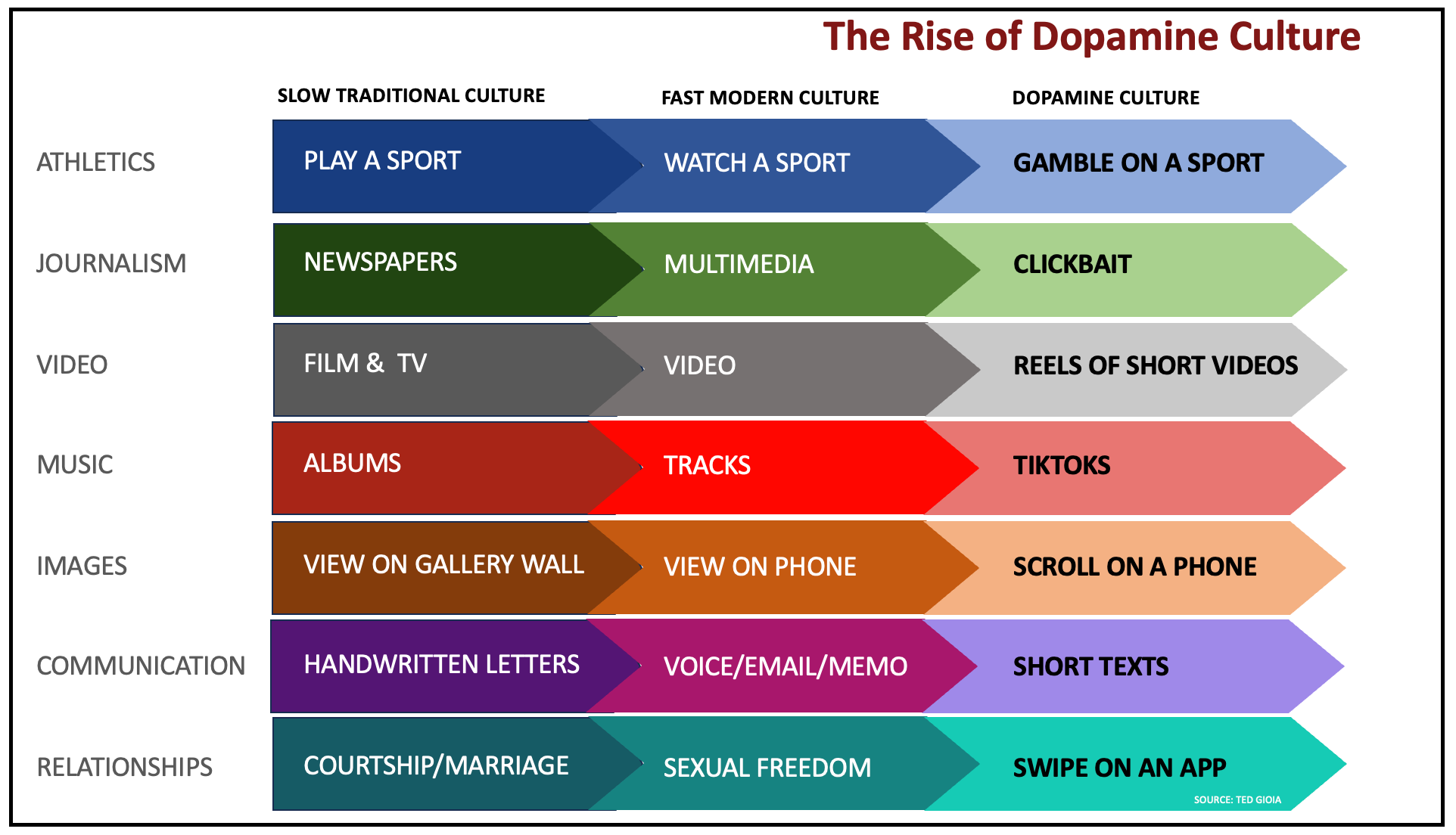
The Modern Viewer’s lack of Empathy
In their article 'the state of culture' The Honest Broker writes about the clear difference between entertainment and art, and the clear divide between the two. Entertainment is made purely for the sake of entertaining and moreso serving an audience while art is more of an outlet for the artists themselves, created as a channel for expression. Most think it is a matter of either selling out and catering purely to an audience, or creating for yourself and hoping that the audience resonates with your own individual vision. What is now trumping entertainment is DISTRACTION, a result of the fastly evolving dopamine culture. Distraction is mindless, easily consumable content that doesn’t offer much substance to retain long term. The honest broker writes that “It’s a huge business, and will soon be larger than arts and entertainment combined. Everything is getting turned into TikTok” Instagram and facebook reels, for example. The Honest Broker goes on to share this infograph,

The infograph shows the model for addiction. They go on to explain that the content being churned out is facilitated in such a manner to cause an addictive cycle. This is due to the digital dopamine cycle wired into social media apps by their creators. What once began as art, turned into entertainment. Entertainment devolved into distraction, and in current society, distraction is turning into an addiction. The honest broker writes "Everything is designed to lock users into an addictive cycle.
I encourage you to go and read the article yourself, as it is truly insightful and terrifying. A necessary read. I will leave you with this lasting infographic shared by the honest broker, that shows how dopamine culture is effecting everything, not just social media users.

Dopamine Culture goes hand in hand with Convienance Culture. So i'd like to link you to my Observations on Convienance Culture" here. . Amazon, doordash, and google searches, are all examples of convenient crutches.
Ayan Artan from the Rent Free With Ayan Substack writes “we are a people intent on running away from ourselves. more scrolling, more apps, more ten second videos masquerading as ‘information’. shrink into yourself. yes, like that. google that word because you can’t even remember the last time you saw a physical dictionary, and watch as we condition you to accept the first AI aided summary as a definition. watch the machines we are draining the world’s resources for get smarter as you get dumber. — people used to be lead by their moral compass; now, it is our algorithms that lead us. –if we all see the same five clips on tiktok, the same three luca guadagnino films, how will we ever be individual?” in their article 'In defense of pretension'
Convenience culture is damaging to us. You don’t open a book and expect the answer to be on the first page. It's a journey to reach the message. Most of your joy is derived from the process it takes to get there, and learning to achieve something rather than just having it handed to you. I believe I am swamped with the quick-fix curse of being catered to by a digital society, and it has been detrimental to me. Art is not for the consumer, products are. Art is an expression of the artist– it either resonates with you as the audience or it doesn't. Amazon, doordash, and google searches, are all examples of convenient crutches. But they deprive us of working for the outcome and the answers ourselves. Immediate gratification robs us of the satisfaction of earning and learning something. Frozen meals vs cooking for example. Sometimes enjoyment is earned and takes a certain level of commitment. In the video 'convienance culture is killing our creative impulses' anna howard said, “Don't always expect things to immediately gratify or fulfill you, or else you might miss something great.” she also said, “Art is not only the ultimate playground, but the place to set up your values and move through them.”